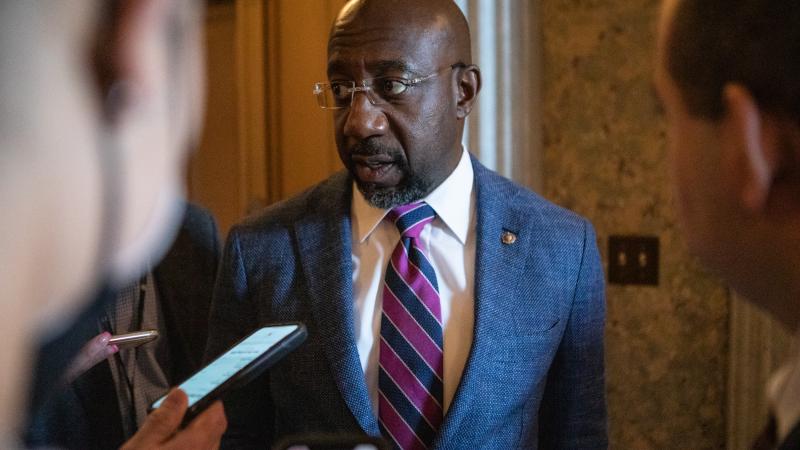McCarthy's Taiwan meeting shows House GOP cracking down on China, with or without Biden support
McCarthy and House Republicans have taken action against the Chinese Communist Party by passing legislation and forming a select committee
House Republicans are continuing to crack down on the Chinese Communist Party, with or without the Biden administration's support. And increasingly, they are getting Democrats to cross the aisle in bipartisan fashion.
The latest sign came Wednesday when House Speaker Kevin McCarthy met with Taiwan President Tsai Ing-wen despite opposition from China.
"China can't tell me where or when to go," he said in advance of the meeting.
A bipartisan group of lawmakers joined McCarthy.
The Biden administration was reportedly trying to calm tensions with China over the meeting taking place.
McCarthy's meeting with Ing-wen is just the latest in a string of actions that have been opposed by China.
At the start of the new Congress in January, House Republicans formed the bipartisan House Select Committee on Strategic Competition between the U.S. and the Chinese Communist Party to "build consensus on the threat posed by the Chinese Communist Party and develop a plan of action to defend the American people, our economy, and our values."
The GOP-led House also recently passed a bill called the PRC Is Not a Developing Country Act, which would "direct the Secretary of State to take certain actions with respect to the labeling of the People’s Republic of China as a developing country."
China has objected to the premise of the bill, arguing that economically, it should continue to be categorized as a developing country, rather than wealthy developed nation. Critics argue the developing designation gives the Chinese an advantage economically on a global scale. The bill has not yet passed the Democratic-led Senate. The White House hasn't said if it supports it or not.
House Oversight and Accountability Committee Chairman James Comer is investigating the foreign business dealings of Hunter and James Biden, which he has said involve China and Russia.
"Over the course of several years, members of the Biden family and their companies received over $1.3 million in payments from accounts related to their associate, Rob Walker," Comer said in a statement. "Most of this money came as a result of a wire from a Chinese energy company and went not only to Hunter and James Biden, but also to Hallie Biden and an unknown ‘Biden.’ It is unclear what services were provided to obtain this exorbitant amount of money."
When asked about the investigation recently, President Joe Biden said, "Give me a break."
Comer has also formed a select subcommittee to investigate the origins of COVID-19 in Wuhan.
Meanwhile, it has been revealed that the China spy balloon that floated over the Midwest in early February before it was shot down had gathered more intelligence than the Biden administration had initially disclosed.
According to new reports, the balloon gathered intelligence from sensitive American military sites. In February, Biden said there was nothing to worry about after the balloon was eventually shot down. He had said it wasn't a "major breach."
Senate Intelligence Chairman Mark Warner, D-Va., previously told Just the News that the Biden administration let the balloon float in U.S. airspace for too long.
After the initial incident involving the Chinese spy balloon, Select Committee on the CCP Chairman Mike Gallagher (R-Wis.) and Ranking Member Raja Krishnamoorthi (D-Ill.) said the Chinese Communist Party "should not have on-demand access to American airspace."
The lawmakers called the balloon a "violation of American sovereignty" that "demonstrates that the CCP threat is not confined to distant shores — it is here at home and we must act to counter this threat."
Gallagher also said the Biden administration's handling of the incident made the U.S. look weak.
While the China spy balloon story continues to develop, the Biden administration and the French government are reportedly engaging China in the hopes of getting help to end the war in Ukraine.
"The two leaders have mentioned their joint willingness to engage China to accelerate the end of the war in Ukraine and take part in building sustainable peace in the region," Macron's office said in a statement.














